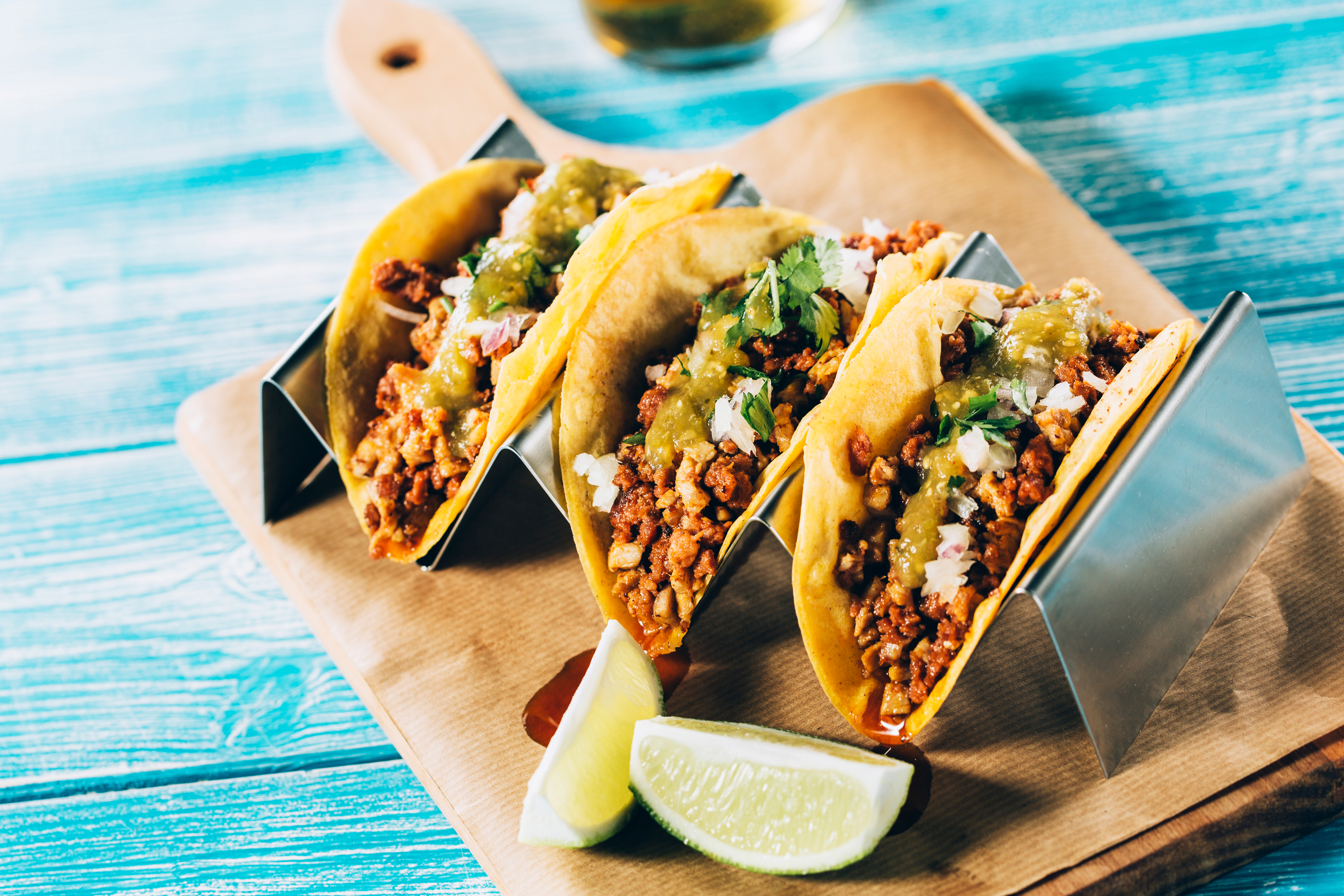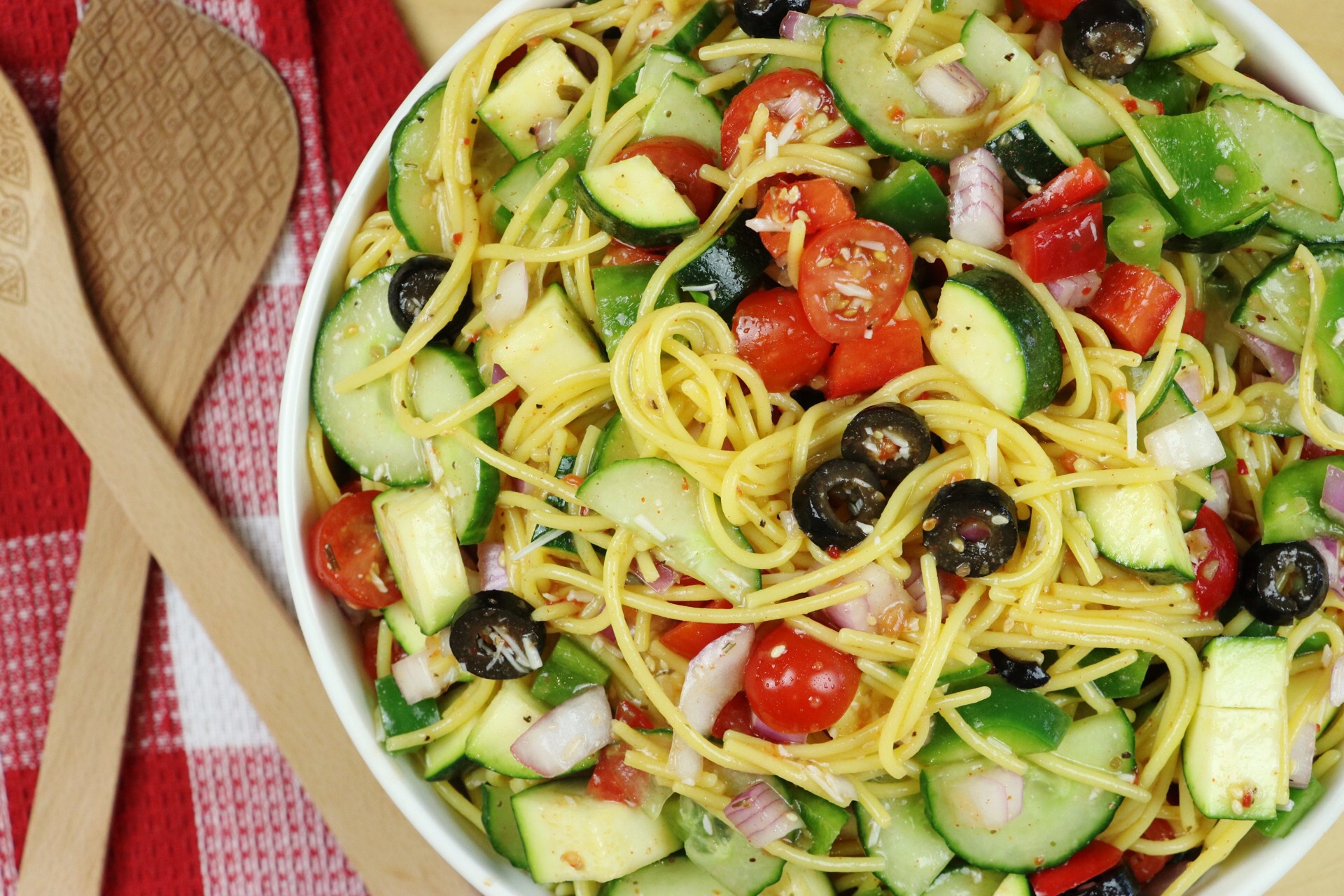Foods to Help Treat GERD
If you have GERD (or gastroesophageal reflux disease), the first thing that you need to do is re-evaluate your diet. Dietary changes can do a lot to ease acid reflux symptoms. Especially if that painfully familiar burning sensation in your chest and throat occurs after eating certain trigger foods, causing stomach acid backup.
Here are fifteen foods that can help treat GERD…
1. Ginger
Ginger is already well known for calming tummy troubles, and when it comes to acid reflux, ginger can quell those symptoms in moderation. A powerful anti-inflammatory, ginger can help to settle the stomach and ease feelings of nausea.
There are a few different ways to consume ginger. You could peel a fresh ginger root and slice or dice it to add to a smoothie, stir-fry, or salad. Another popular way to consume ginger is steeped in tea.
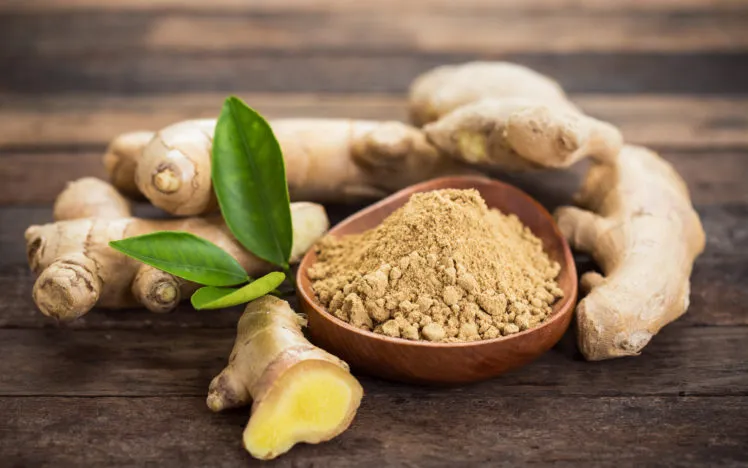
Shutterstock/pilipphoto
2. Leafy Greens
GERD sufferers should make a point of eating salad every single day…mind you skip the acidic tomatoes and onions though. However, leafy greens—such as baby spinach, arugula, mesclun mix, and romaine lettuce—can be tossed in a fresh bowl or stuffed in a sandwich for their anti-inflammatory prowess.
Leafy greens are naturally low in fat and sugar which can help to reduce stomach acid secretion and settle the stomach. They are also high in alkaline which is good for the gut.
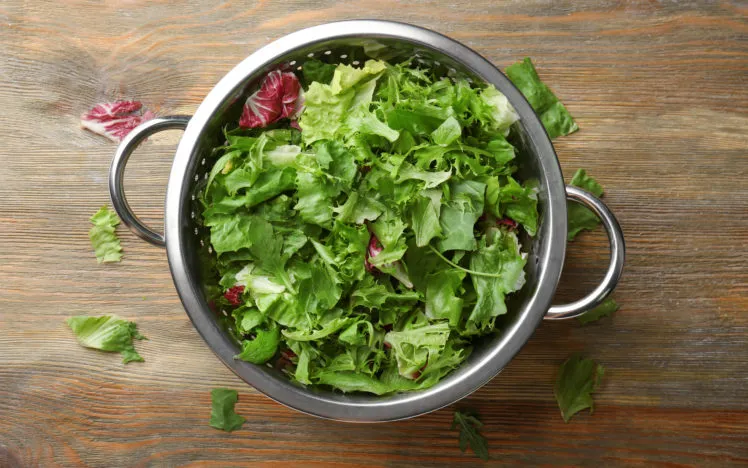
Shutterstock/Africa Studio
3. Herbal Tea
Coffee and carbonated beverages, such as pop and energy drinks, will likely kick your acid reflux into action so they are best to avoid. If these beverages are something you reach for often, try switching out for an alternative to help kick your GERD symptoms.
You could try to opt for something decaffeinated such as a herbal or camomile tea which can help to soothe your sore throat, settle your stomach, alleviate stress and alleviate reflux.
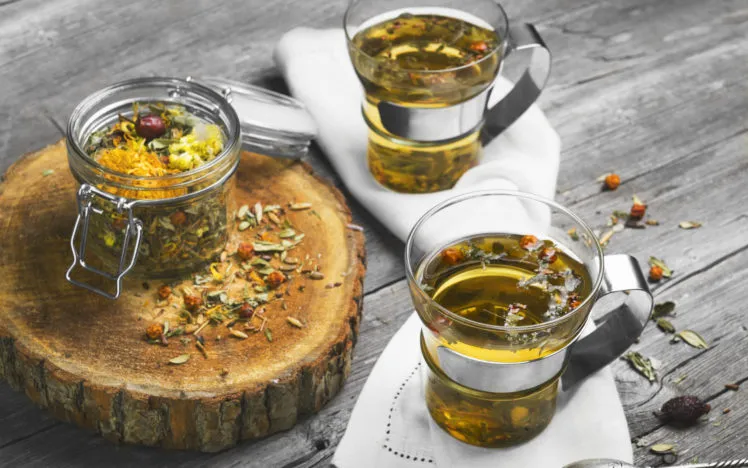
Shutterstock/Sergey Fatin
4. Poultry
Chicken and turkey should be multi-weekly menu items on your reflux-friendly diet. These lean meats are low in fat and can help reduce acid reflux symptoms.
Chicken and turkey can also be prepared in so many ways, making them a super versatile option. You could eat them baked, steamed, grilled, stir-fried, or sautéed. Just try to opt for white meat if possible and always remove the skin for the lowest fat and highest protein option.
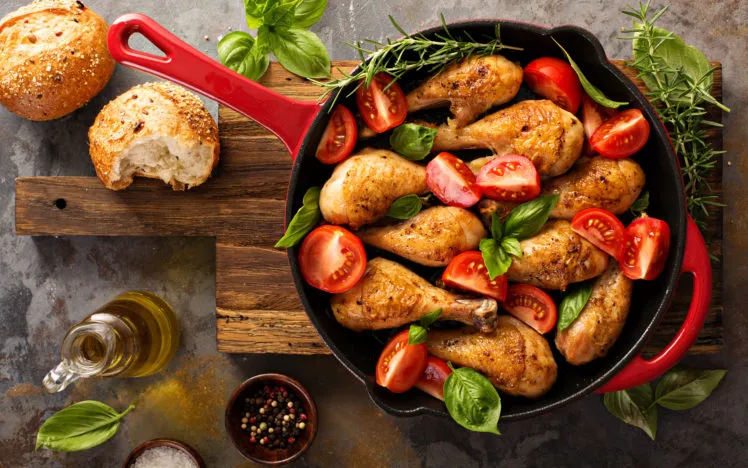
Shutterstock
5. Asparagus
Asparagus is an ideal food for those with GERD due to the fact that it aids in maintaining the acid-alkali balance of the body. This healthy green also helps to control acid levels in the digestive system, which is important if you’re suffering from GERD.
Asparagus is a light vegetable that is low in fat and sugar and can help reduce stomach acid. Toss in oil and seasoning and bake or steam on your stovetop.
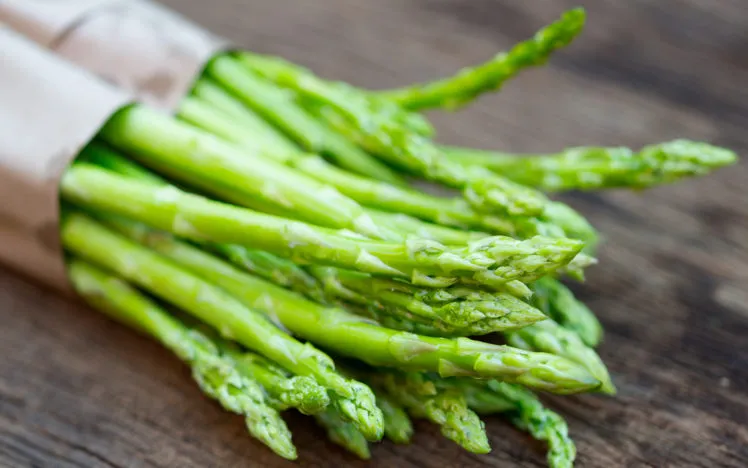
Shutterstock/frank60
6. Fish
Wild fish, as opposed to farm-raised filets, serve as an excellent protein source for those with acid reflux. Packed full of healthy, omega-3 fats, and vitamins, wild fish can help reduce reflux.
There are a variety of lean fish to choose from including wild trout, cod, salmon, and sole. When it comes to cooking, be sure to broil, grill, bake, or sautee your dish. Just be sure to avoid skip the creamy, fatty sauce which could contribute to your symptoms!
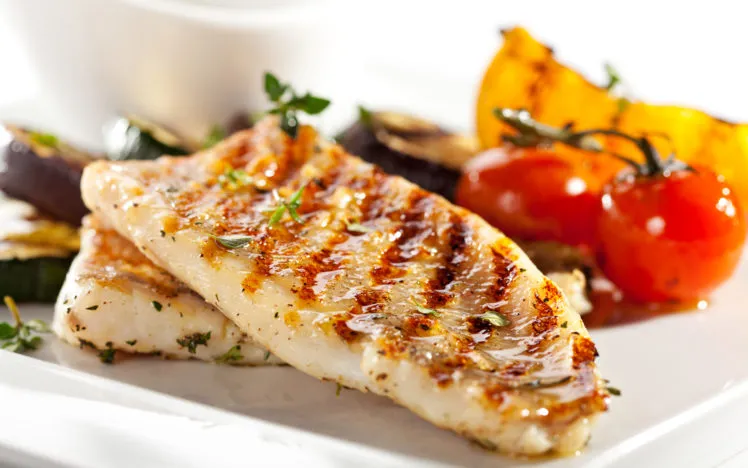
Shutterstock/Ryzhkov Photography
7. Fennel
Many vegetables work well to soothe symptoms of GERD and settle the stomach. While you may initially think to consume common root vegetables such as sweet potatoes, turnips, and carrots, another great choice to try is fennel.
This crunchy vegetable with a distinct liquorice flavor is touted for improving stomach and digestive performance. If you slice or dice it, you can toss it into salads, casseroles, a chili, stew, or soup to add a little unique zip!
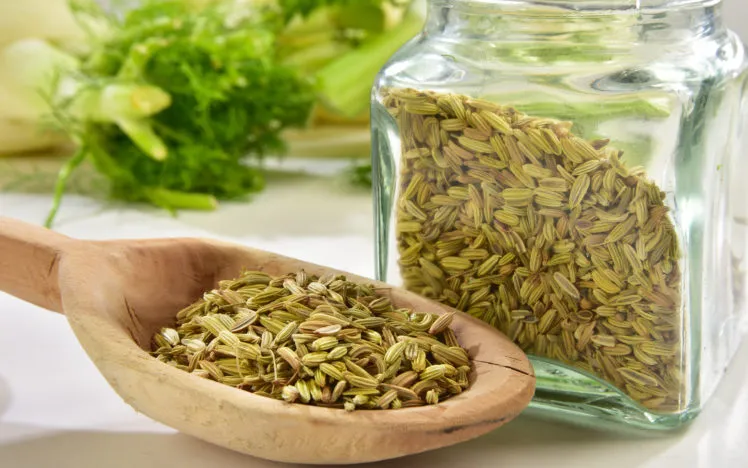
Shutterstock/barbajones
8. Bananas
Bananas make a great snack for people with GERD because they can help to coat an irritated esophageal lining. Known for being high in potassium, bananas also have a low pH level which is important to help settle the stomach and alleviate symptoms of GERD.
One thing to note, however, is that a small minority of those who suffer with acid reflux (1-percent) complain that bananas aggravate their discomfort—so peel with caution.
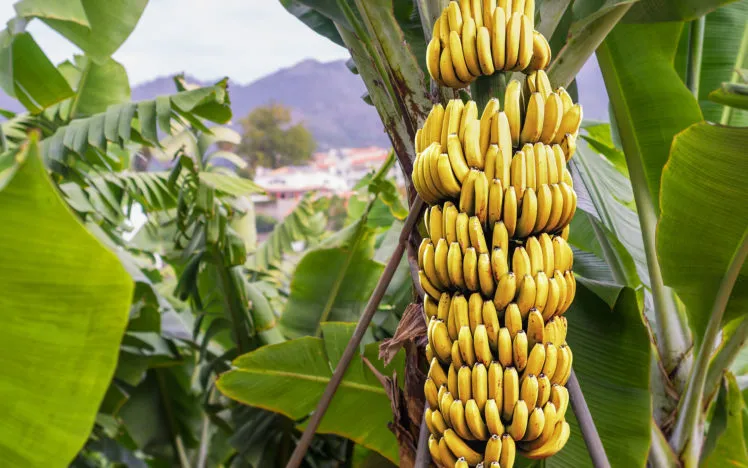
Shutterstock/pp1
9. Aloe Vera
You may be surprised to learn that aloe vera has been administered as a natural healing agent for digestive issues, including indigestion, for decades. Aloe vera is a natural anti-inflammatory and is packed with vitamins, minerals, and amino acids.
You can buy aloe vera as a living plant and break off a bit as you need it, or you can purchase Aloe Vera in bottled liquid form and add it to your morning juice or smoothie.
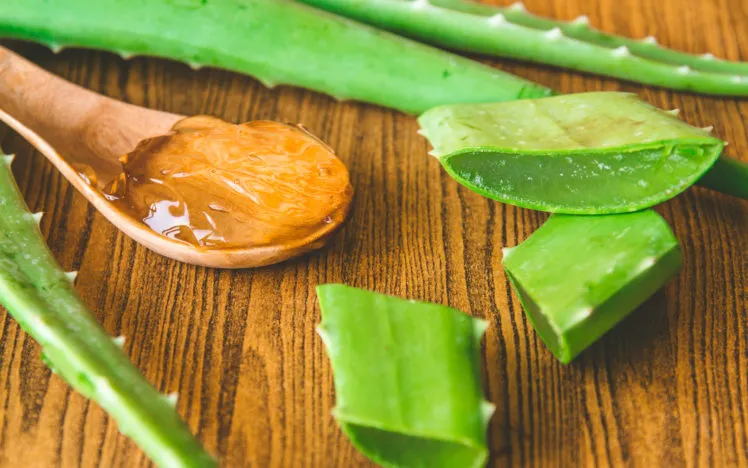
Shutterstock/Momentum Ronnarong
10. Brown Rice
Complex carbohydrates, such as brown rice, help absorb the acid in the digestive system and keep it under wraps. Plus, brown rice, quinoa, and couscous are high in fiber, which means they’ll thwart post-meal acid indigestion.
Next time you’re feeling symptoms of GERD, try eating a simple carb to soothe your stomach. Looking for a quick and easy way to cook a large batch of brown rice? Check out this Instant Pot Hack: Cooking Perfect Brown Rice.
11. Seafood
Seafood is another great option to eat when you’re suffering with symptoms of GERD. There are a wide variety of seafood options to consume including shrimp, lobster, scallops, and muscles. Seafood is an excellent source of protein and can lend a hand towards diminishing acid reflux.
When it comes to cooking, be sure to grill, bake or sauté your seafood. Frying it may contribute to your GERD symptoms and could actually make things worse.
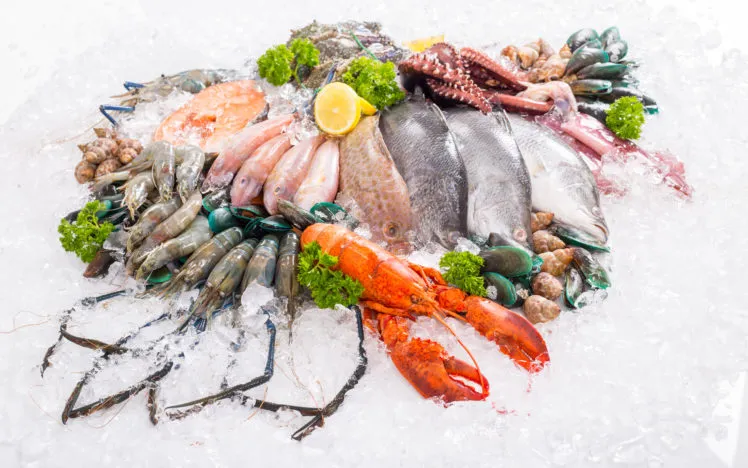
Shutterstock
12. Parsley
For thousands of years, parsley has been used to soothe stomach ailments, making it a great option to help ease symptoms of GERD. Sprigs of parsley are often given as after dinner aids to ease digestion.
Next time you’re feeling your stomach acting up, try incorporating this medicinal herb into your diet. Sprinkle a little bit of flat-leaf or curly parsley on to your meals to act as a seasoning, a garnish, and a digestif.
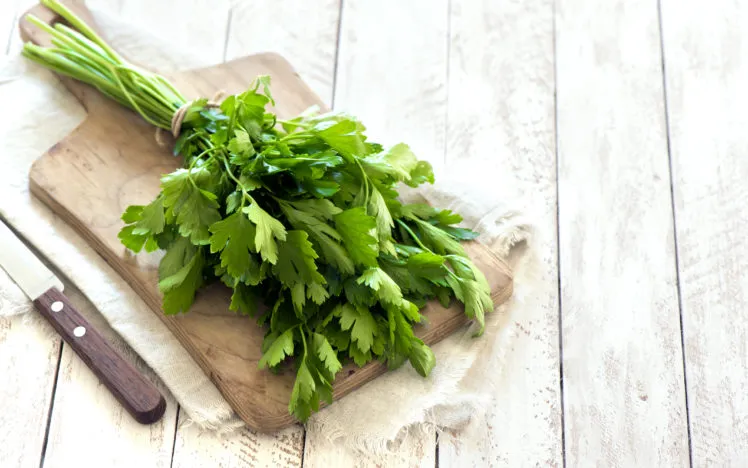
Shutterstock/Oksana Mizina
13. Oatmeal
Oatmeal is the breakfast of champions! It’s true that eating oatmeal in the morning will fuel you for the day, keep you full for longer, and absorb any excess acidity in your stomach.
Oatmeal is a simple carb that is soft and fairly easy on the esophagus, meaning it isn’t likely to cause any additional pain or discomfort. If you’re craving something sweet, you could also top your oatmeal with some berries, bananas, apples, or pears.
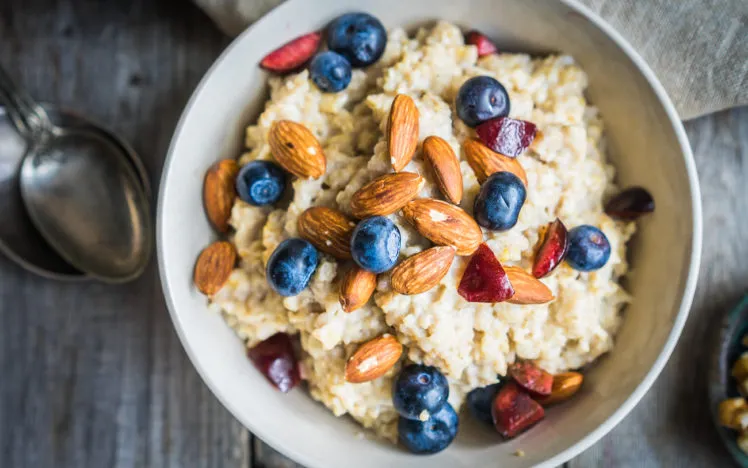
Shutterstock/Alena Haurylik
14. Watermelon
Watermelon is another great healthy option to opt for if you’re struggling with GERD. And in fact melons of all types—including honeydew and cantaloupe—are neutral in terms of their acidity, which encourages digestion and reduces acid build up and the harshness of reflux.
Nothing beats biting into a juicy slice of watermelon on a hot summer day, but especially so since it’s a low-acid fruit that won’t trigger your symptoms. It also has a high water content that will keep your body hydrated.
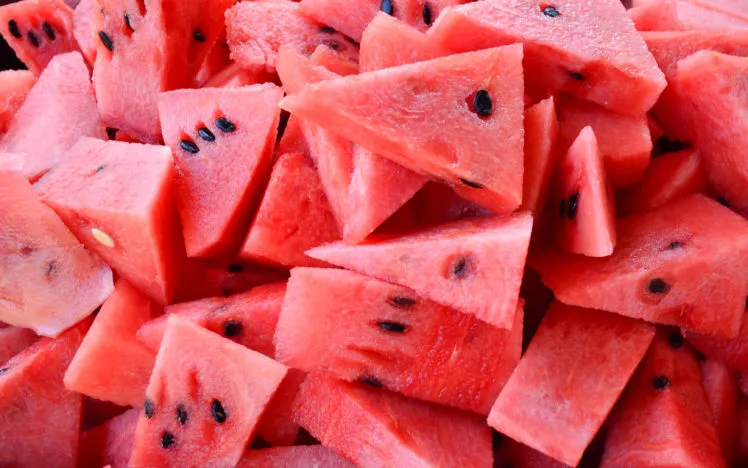
Shutterstock/immstudio
15. Celery
Celery is not only a great appetite suppressant as well as a particularly notable source of roughage—the fact that it’s high in water content and antioxidants means it soothes heartburn and eliminates indigestion-causing toxins, and purging them via the digestive system and intestinal tract.
Celery is a mild vegetable that is healthy, low in calories and won’t trigger your symptoms or cause more gas. It can both alleviate and prevent the symptoms of GERD so it’s a great food to incorporate into your diet regularly.
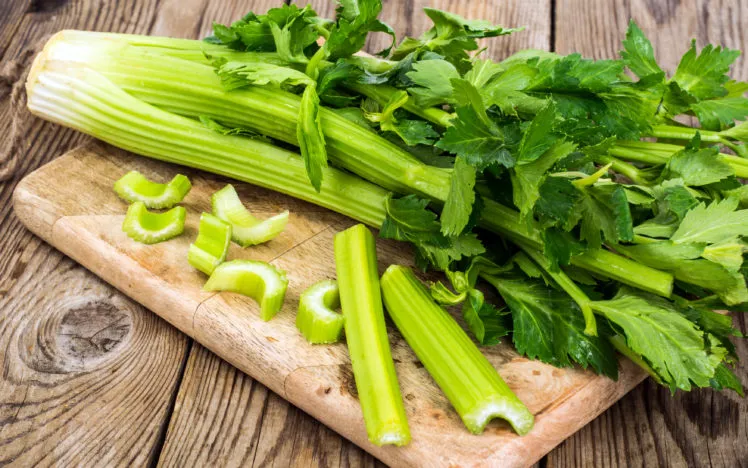
Shutterstock/ArtCookStudio



